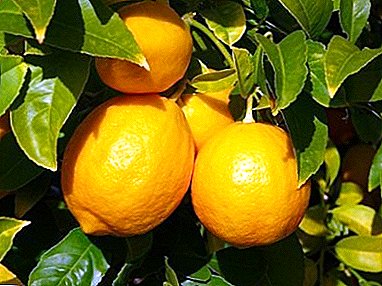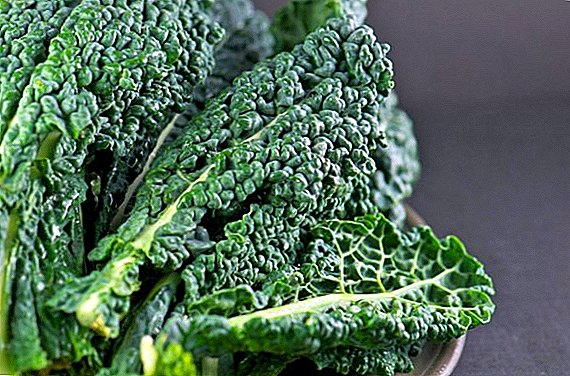 Nutritionists have praised the vegetable called Kale cabbage, varieties of which are very popular abroad and are often called "wild" or "curly", "braungol" or "grunkol". Leaf plant Brassica oleracea var. Sabellica belongs to the cabbage family garden plants. Compared with Brussels sprouts and broccoli, this product of breeders is not often featured in the restaurant menu, but every year its breeding is gaining more and more popularity among summer residents, in particular due to frost resistance (up to -15 ° C) and useful properties of the plant.
Nutritionists have praised the vegetable called Kale cabbage, varieties of which are very popular abroad and are often called "wild" or "curly", "braungol" or "grunkol". Leaf plant Brassica oleracea var. Sabellica belongs to the cabbage family garden plants. Compared with Brussels sprouts and broccoli, this product of breeders is not often featured in the restaurant menu, but every year its breeding is gaining more and more popularity among summer residents, in particular due to frost resistance (up to -15 ° C) and useful properties of the plant.
Key features of the appearance of the vegetable:
- the absence of the usual head;
- the presence of a shortened stem (looks like a salad);
- lacy leaves shimmer with green, burgundy or lilac shades.
Did you know? By the amount of calcium, this vegetable is much better than even cow's milk. And the number of proteins can be an excellent analogue of meat dishes.
Kale Red
 The ancestor of all ornamental cabbage varieties in the Americas is called "red Russian cabbage". The vegetable plant is saturated with anthocyanins, calcium, magnesium and vitamins A, C, E, K. In addition, Kale red cabbage is an additional source of antioxidants.
The ancestor of all ornamental cabbage varieties in the Americas is called "red Russian cabbage". The vegetable plant is saturated with anthocyanins, calcium, magnesium and vitamins A, C, E, K. In addition, Kale red cabbage is an additional source of antioxidants.
Her sheets are like ruffled lace assemblies. Decorative cabbage hybrid is used to decorate the garden or flower beds. 2.5 months is enough for full ripening of red leaves. This variety is considered one of the most frost-resistant species, as it withstands 18-degree frost. With a decrease in air temperature, the shade changes. Color from purple-green to deep lilac color.
Hybrid seedlings are best grown in open ground. After the first ascent, add about 2% fertilizer to strengthen the shoots. The optimal time for sowing is 1.5 months before planting the seedlings.
Kale Green
Kale green cabbage hybrid, in its healing properties and taste is equal to the previous variety. The view tolerates winter cold and in the second year of ripening brings a good harvest. Natural product reduces harmful cholesterol in the blood, normalizes the gastrointestinal tract. Thanks to the exquisite taste, cabbage green Kale can be a key ingredient for a green soup or salad with fresh vegetables and greens, as well as other dishes from the diet list.
Kale Siberian
At one time, breeders achieved the ability to fruiting a cabbage hybrid vegetable during severe bitter cold (up to -150 ° C). This species is especially common in the Netherlands and other cold-European countries.
The plant is resistant to cold, resistant to insect pests. In the Ural and Siberian open spaces, the Siberian variety of kale cabbage ripens for about 80 days. Summer residents recommend growing the species with the help of seedlings for better harvest. The unique dwarf garden plant is not inferior in taste to other varieties. With the onset of frost cabbage leaves become tastier, more tender and much sweeter.
Important! In December, you can safely harvest a vegetable crop with delicate leaves. When planting seeds of Siberian cabbage Kale in the conditions of the room, it is desirable to have time to perform the procedure 5-7 weeks before the last frost.
Kale Premier
Fast growing variety. Cabbage hybrid is ideally combined with meat and other vegetables in hot dishes. Provides premium taste and aroma to various restaurant delicacies. A dietary product with a high content of potassium, phosphorus, sodium, iron, zinc, selenium and copper. Cabbage braungol Premier is recommended for use after food poisoning. 
Kale Scarlett
A kind of decorative vegetable with an incredibly beautiful purple and dark green color.. Exquisite pumpless hybrid will be the key decoration of the ornamental garden or flower garden. The seeds of the plant germinate within 10 days. The intensity of the color of the leaves increase the frosts. With sufficient care, the Scarlett variety will appreciate the generous harvest of large and juicy leaves, which are rich in vitamins A and C.
Kale Trostevaya
The vegetable has a tall, thin stem up to one and a half to two meters high, resembling a cane with cuttings. It fastens corrugated at the edges of the leaves with a bubbly surface. This is a useful product for the daily menu and for the effective prevention of cancer.
There are many varieties of cabbage, besides the usual white, interesting Savoy, Brussels, kohlrabi, Beijing, cauliflower

Kale dino
High grade of Tuscan origin, which stands out endurance, nutritional properties. Long-term use of elongated Dino cabbage leaves in the daily diet increases the visual acuity and resistance of the eye retina to UV radiation. The amount of active vitamin C in cabbage fiber is a worthy analogue of citrus fruits. 
Did you know? In Europe, violet brauncol with large leaves has been known since antiquity, but the peak of its popularity falls on the Middle Ages.
Kale Curly
Curly variety of hybrid cabbage with a pronounced violet-burgundy color of soft and overnight crispy leaves. Each sheet has a wavy assembly around the edges. Kinky primer has antiseptic properties due to the high concentration of the beneficial substance sulforane. Vitamins and trace elements of an unusual vegetable are absorbed much easier than vitamins synthesized in the laboratory. 
Black Tuscany
Tuscan cabbage is cultivated in southern latitudes. Harvest without a grunkol from the beginning of summer to late autumn. It is a vegetable culture with an unusual form of leaves dull green with a matte sheen.
Dense leaves of the plant resemble tubercles in structure, the variety is a bit like Savoy cabbage. Vegetable will not only decorate the table, because the hybrid variety "Black Tuscany" contains many amino acids and Omega 3 fatty acid. 
Reflex F1
A hybrid plant with pronounced taste is quite popular among summer residents. Externally, it looks like a semi-vertical rosette with strongly corrugated dark green leaves. When matured, it reaches a maximum height of 80 cm.
This blaunkol appears in many therapeutic diets as the main vegetable salad. Variety of hybrid cabbage reflex f1 equate to a group of medicinal plants. Only 100 g of cabbage leaves contain sufficient baggage of useful vitamins and minerals.
Redbor F1
Culinary experts appreciate middle-aged Kale for a pleasant and smooth taste.. Experienced gardeners grow this variety on land with good lighting. The absence of shade from the branches of trees favorably affects the decorative qualities of the vegetable. 
Culture is unpretentious in the care. In the process of maturation reaches a height of 70 to 150 cm. Two-year grade cabbage leaf redboard f1 has maroon palm-shaped curly leaves.
The good neighbors of cabbage are dill, beans, cucumbers, potatoes, radishes, garlic, peas, chard, sage, beets, spinach, celery.
So, the described vegetable is the best option for a healthy daily diet, a real storehouse of vitamins and nutrients for the health of our body. Most of the above varieties are well cultivated in the climatic conditions of our country.












